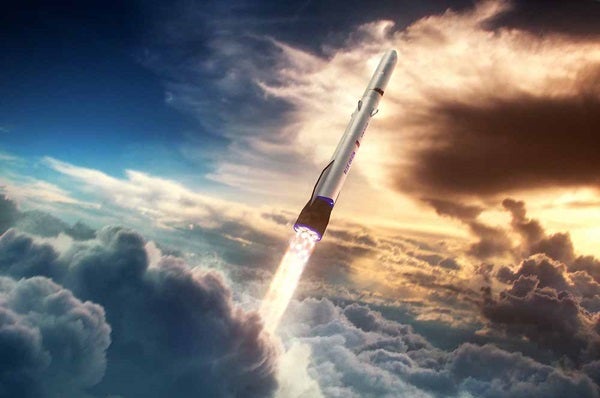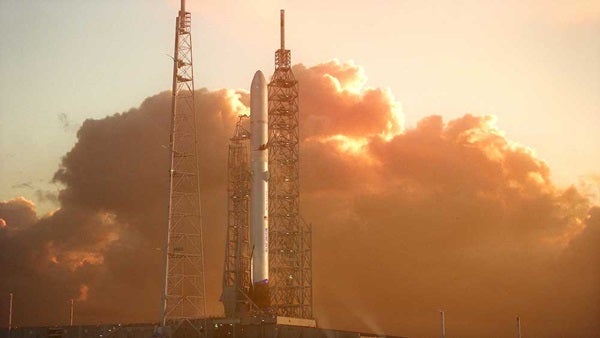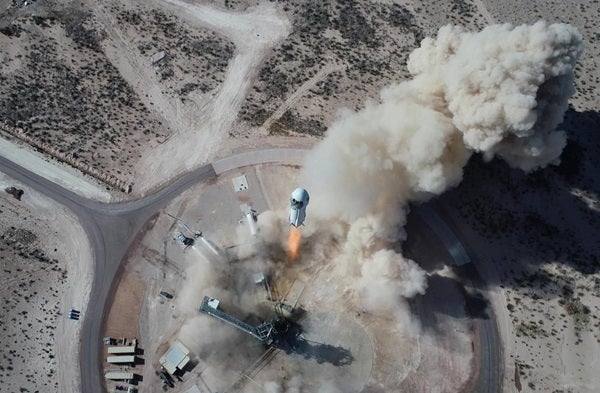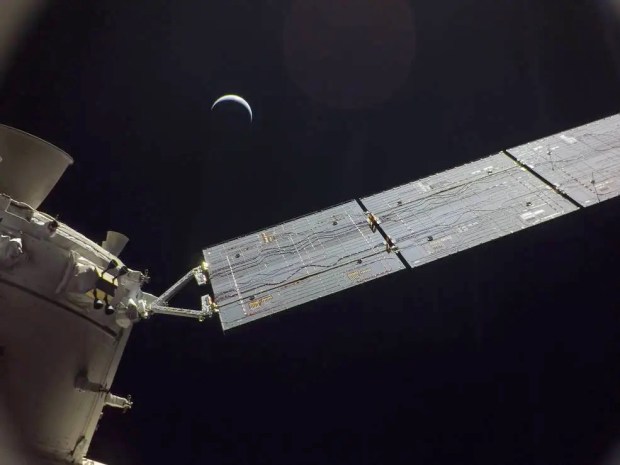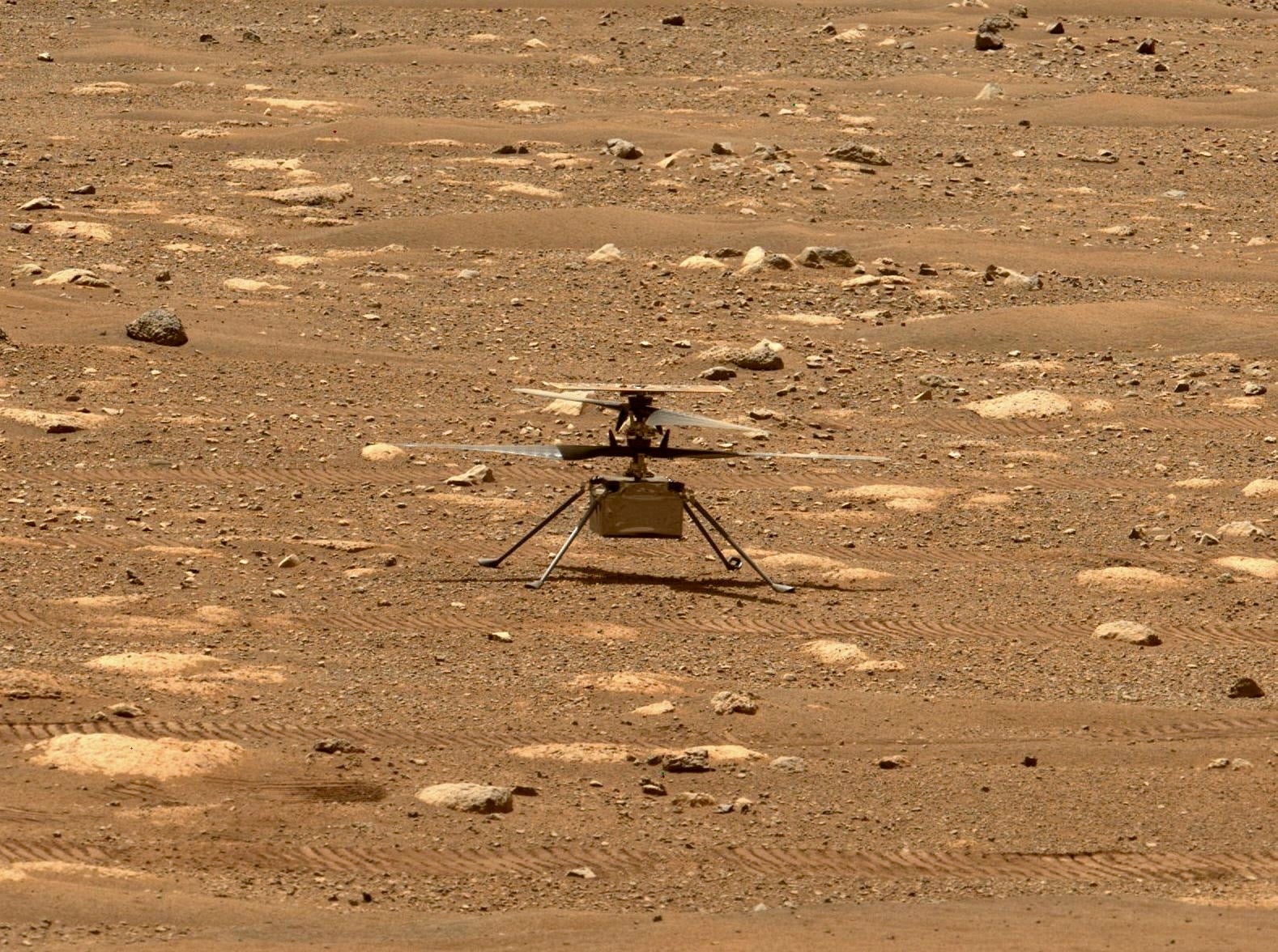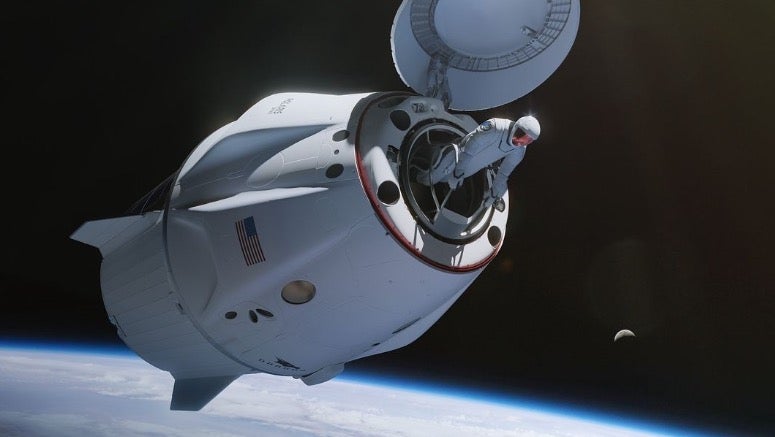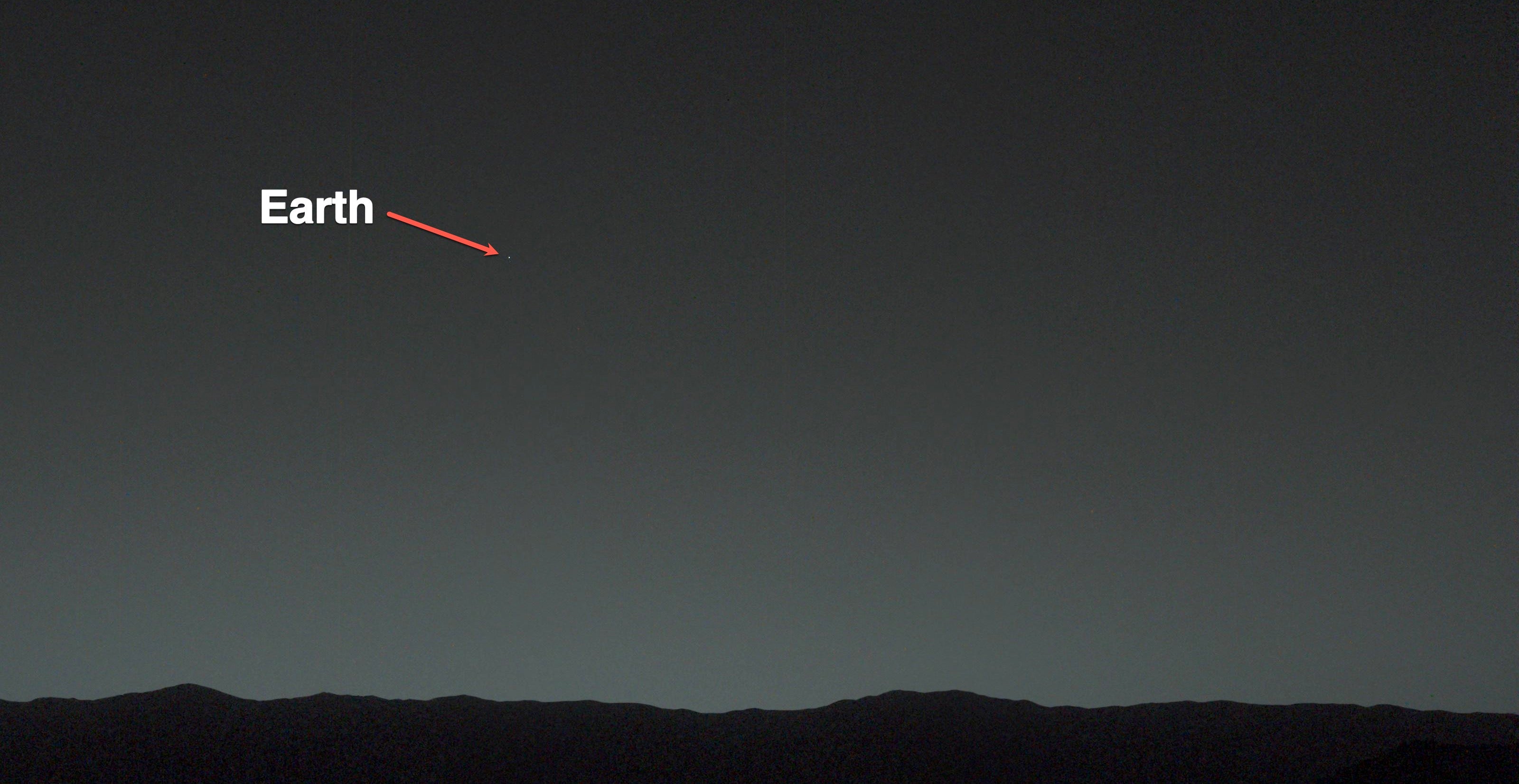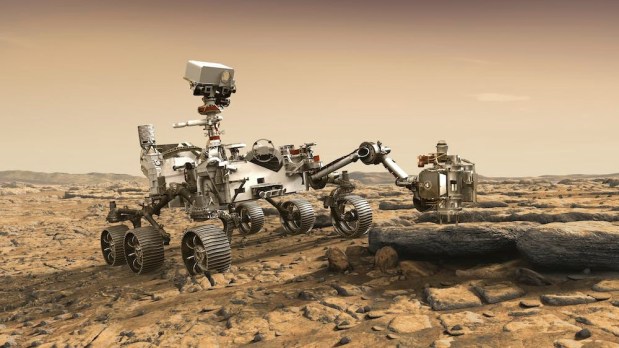Human spaceflight, once the sole purview of national governments, is now moving (at least in part) into the hands of private enterprise. While Elon Musk’s SpaceX venture has received the lion’s share of attention, other private companies exist, and they’re making considerable headway toward putting humans into space. Among them is Blue Origin, founded in 2000 by Amazon founder Jeff Bezos.
Bezos had an interest in spaceflight since he was a child. But only in adulthood did his vast wealth allow him to work toward turning his dreams into reality. Blue Origin’s plan is to take small, incremental steps toward achieving human spaceflight. And the names of both their current and future spacecraft telegraph their plan of operations.
Delivering to the stars
Blue Origin’s first true rocket was named Goddard after rocket pioneer Robert Goddard. The craft used nine clustered peroxide-powered rocket engines to make sub-orbital flights, and it was essentially a proof-of-concept testbed and demonstration article to show the company’s intent. Goddard’s first successfully flight was in 2006, and it has since been retired.
Far larger in both scope and scale was their next rocket: New Shepard, named for the first American in space, Alan Shepard. Another nod to its namesake is the fact that the rocket is a sub-orbital craft, as NASA’s Project Mercury saw Shepard fly Freedom 7 on a sub-orbital mission.
New Shepard is powered by a single BE-3 liquid hydrogen/liquid oxygen rocket engine and stands 59 feet (18 meters) tall. For comparison, a Mercury-Redstone rocket stood 83 feet (25 m) tall. Shepard notably sports a crew capsule with large windows that astronauts can use to take in Earth below during the flight’s apex. New Shepard’s flight profile involves a launch followed by a suborbital ballistic flight path, with the crew capsule separating from the booster before the craft reaches its highest point. Once separated, the booster itself (which is reusable) returns to Earth by making a guided, vertical landing. Meanwhile, the capsule and its planned six occupants will experience a brief period of weightlessness before they return to Earth. New Shepard‘s capsule uses a parachute-based system aided by retro-rockets to achieve a soft landing.
To date, New Shepard has made a total of 14 launches, all unmanned. Some flights have included the crew capsule on top of the booster. And occasionally the crew capsule has carried an instrumented mannequin named Skywalker (…get it, “mannequin Skywalker?”). The most recent iteration of the craft, known as New Shepard 4 flew January 2021; the mission was widely viewed as a dress rehearsal for the crewed launch currently set to carry Bezos and three other passengers into space, which is scheduled for 9 a.m. EDT on July 20.
Then there’s New Glenn, Blue Origin’s planned rocket that aims to send crew capsules into orbit. Like the rockets before it, New Glenn honors Mercury astronaut John Glenn, the first American to orbit the Earth during his Friendship 7 flight. New Glenn is planned to be a two-stage rocket that will be powered by seven BE-4 rocket engines in the first stage and two BE-3 engines in the second stage. The rocket will use liquid hydrogen and oxygen for fuel.
Designed to be economical, New Glenn’s first stage is planned to be reusable up to 25 times (a feat which is easy to say but hard to actually accomplish). The first stage is designed to land vertically on a seaborne platform; the second stage would be expendable. With a large fairing diameter of 23 feet (7 m), the designers hope it will be able to lift bulky payloads into space. The company promotes the craft as being able to place 45 tons into low Earth orbit in a single flight — a significant accomplishment if they can make it a reality. New Glenn was originally scheduled to make its first flight in 2021, but this has now been delayed to 2022.
In 2018 the U.S. Air Force committed $500 million to Blue Origin to be used by 2024. While on the surface this appears to be an altruistic move, the reality is that the Air Force wants several viable options to compete for its launch business in the future — and they also don’t want to be dependent on Russian launch systems any longer. The Air Force and Space Force have likewise helped fund other private space ventures, such as SpaceX.
Beyond sub-orbital and orbital launch vehicles and a crew module, Blue Origin is making even loftier plans. The company’s website openly touts that they have their eyes on an even bigger goal — a return to manned lunar flights, up to and including landings. Their lunar launch vehicle (which does not as yet exist) is referred to as Blue Armstrong (for obvious reasons). Their lunar landing system, Blue Moon, is planned to incorporate both manned and unmanned landers to ferry people and cargo to the surface of the Moon.
While it should be stressed that Blue Origin is still in a developmental phase and has yet to put a human into space, its efforts to date have been both concerted and impressive. Blue Origin has enjoyed some early successes with New Shepard, and a successful crewed launch later this month would be a tremendous boost to both the company and private spaceflight in general.
One can imagine a near-future in which Blue Origin, SpaceX, Virgin Galactic, and other companies are all independently launching both crewed and uncrewed missions to low Earth orbit and beyond. Blue Origin still has a way to go if they hope to catch up to, or even surpass, SpaceX. But you can certainly accomplish a lot when your founder is one of the wealthiest people on (or off) the planet.
Doug Adler is the co-host of The Right Stuff Companion podcast.

